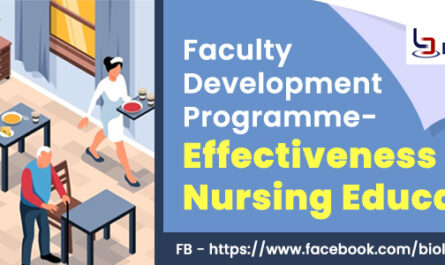The midwifery profession is constantly evolving, shaped by advancements in the healthcare system and technology. In 2025, several key trends and issues in gynecological nursing are emerging. These developments are impacting the work culture of nurses and redefining their roles in pregnancy and child care.
Midwifery is a healthcare profession dedicated to the care of women during pregnancy, childbirth, and the postpartum period. Midwives are trained professionals who provide comprehensive maternity care, focusing on the physical, emotional, and social well-being of both mother and child. Their approach is holistic, emphasising natural childbirth and minimising medical interventions whenever possible.
In this article, we will explore the latest trends and issues in midwifery to gain a deeper understanding of the profession.
Recent Trends in Midwifery Profession
Here are the recent trends in midwifery to watch in 2025 and beyond:
Online Education Programs
Learning is a lifelong process, and the midwifery profession is no exception. In 2025, you will see various online education programs that will share the future of the midwifery profession in the world. There is online training on the latest techniques for mother and baby care after pregnancy.
With online education, nurses can stay up to date with best practices for women’s care during pregnancy. Moreover, the virtual conference on c-section and normal delivery will help you understand the advance care for patients. With online education, you can learn from anywhere with ease without worrying about traveling to other cities or states to gain knowledge.
Also, there are specialised certificates for midwives, which help you secure a position in nursing homes, hospitals, IVF centers, and maternity homes. There are employers who support midwives through regular training and tuition.
Expanded roles for midwives
Increasing midwife’s responsibility for professional help to pregnant women provides expanded roles for them. Now the role of a midwife is more than just care for the lady during or after pregnancy. With training and education, the midwives become responsible for everything, including diet experts, medicine experts, and assistance in the labor room for pregnant women.
Midwives who have completed specialized courses are capable of diagnosing any issue during 3rd trimester. Also, they are experts in handling postpartum difficulties such as back pain, weight gain, body aches, feeding issues, etc.
Now, midwives not only provide comprehensive prenatal and postnatal care but also conduct routine gynecological exams, offering family planning and contraceptive counseling too. These trends in midwifery and obstetrical nursing promote wellness and prevent illness among women.
Advocacy and policy
Notable current trends in Obstetrics and Gynaecology include advocacy and policy. Presently, there are many changes in policy to protect the rights of midwives. This includes efforts to improve midwifery education, licensing, and practice regulations. Midwives advocate for the recognition and integration of the midwifery profession within healthcare systems. This emphasises the importance of their role in providing accessible, cost-effective, and quality patient care.
In addition to advocacy, midwives are involved in policy development and implementation at local, national, and international levels. Also, midwives work to ensure that policies are evidence-based and centered on the needs of women and families. So, midwives are not only aware of their rights but also guide people about the rights of pregnant women and newborn children.
In countries like India and Africa, midwives play an important role in educating rural area people about their rights related to pregnancy. Also, they help pregnant ladies with needed nutrition and medicines.
Integration of technology
Integrating technology in the midwifery profession is a significant trend that enhances the quality and accessibility of care. With telehealth services, midwives are able to do online prenatal and postnatal consultations. This is very beneficial for women living long distances or who don’t have time to visit a midwife for consultation.
Another technology is electronic healthcare records, which help improve the accuracy and accessibility of patient information. Also, the availability of healthcare mobile apps helps pregnant women track their health for regular check-ups. In addition, midwives can read online material to enhance their knowledge and skills for patient care.
Emphasis on mental health and wellness
Many midwives experience stress on a daily basis, and this can affect their mental health or quality of life. But, there are rules and laws that emphasize their mental well-being. Awareness and education about self-care for midwives have become a priority in the healthcare field. Now, midwives get training about how to keep the body stress-free.
There are regular yoga and meditation camps for them to help with wellness. Also, the employer organizes workshops on mental well-being to guide midwives about how to stay calm and handle patients with happy faces. In hospitals, there is proper shifts of midwives depending upon 8-hour work so they don’t feel stressed and can focus on their families too.
All the above-mentioned are also the trends of maternity services in India and other parts of the world.
Current Issues in Midwifery
The midwifery profession faces many issues that can impact both practitioners and the quality of care provided to mothers. Some of the key issues are as follows:
Workforce shortage
Due to long hours of duty, there is a lack of workforce in the midwifery profession. Not everyone is ready to work as a midwife to help new moms with postpartum or prenatal care. Also, most people are not aware of this profession, which makes them choose another profession over it.
In countries like India, according to population, the midwives are few in number. This creates a workforce shortage in the healthcare systems such as maternity centers, hospitals, and nursing homes. The same is the case with other populated countries like China and more.
Scope of practice
Varying regulations and new laws can restrict the scope of practice for midwives in various regions across the globe. For example, limitations on comprehensive care can lack in their practice to excel in the field. Also, in most areas, midwives are not allowed to practice independently as they need to join some healthcare centers to practice.
Recognition and respect
Midwives often struggle to be recognized and respected within the broader medical community. This can affect their mental health and professional work, too. Also, in public, there is a wrong perception that they are not educated or experienced. This kind of misunderstanding or lack of awareness about the role of midwives can affect patient’s trust in them.
Most people are also not well aware of their roles in healthcare. Midwives are highly skilled at handling pregnant ladies before and after delivery. They are the ones who take care of everything from medicines to diet and exercise. Midwives also help pregnant women with movements and massage.
Financial issues
Midwives often receive lower salaries than other healthcare professionals with similar levels of education. In some areas, their income may not be enough to cover their basic monthly expenses, leading to financial strain. Also, training and education costs are expensive and can be difficult for people from low-income backgrounds.
FAQs
Do trends in midwifery and obstetrical nursing change every year?
Trends in midwifery don’t change every year, but yes, they change over a period of time. It all depends upon how fast the medical technology is changing. Also, the advancement in education and learning tools can affect the trends in midwifery and obstetrical nursing.
How can we stay updated with current trends in obstetrics and gynaecology?
To stay updated with the current trends in obstetrics and gynecology, participate in medical conferences and read books. You can also join some healthcare systems and participate in workshops to stay updated about your field.
How do midwives support maternal and infant health outcomes?
Midwives play a crucial role in promoting healthy pregnancies, reducing the risk of complications during childbirth, and supporting maternal-infant bonding. Their holistic approach to care emphasizes education, support, and empowerment. This contributes to positive birth experiences and improved outcomes for both mothers and babies.
Are midwives only for natural births?
No, midwives provide care for a range of childbirth experiences, including natural births, medicated births, and c-sections. They support individuals in making informed choices about their birth preferences while ensuring the safety and well-being of both the mother and baby.
Final Words
Now, you know the trends and issues in midwifery, so choose the profession wisely. Make sure you keep yourself up to date with the roles and responsibilities of the midwife to join the profession. Also, if you wish to learn more about the role of a midwife and its profession, then attending a midwifery conference can help you. This will keep you updated about the latest trends in midwifery and obstetrical nursing.




